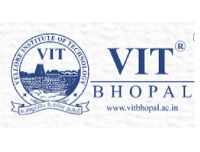Cultivating Your Future:
Pursuing a B. Sc in Horticulture
Horticulture, the science and art of growing fruits, vegetables, flowers,
and ornamental plants, is a field that combines passion, creativity, and
scientific knowledge. B.Sc in Horticulture is an excellent choice for
those who are fascinated by plant life and want to make a significant impact in
agriculture, landscape design, or environmental sustainability. This blog
explores the scope, benefits, and career prospects of pursuing a B. Sc in
Horticulture.
What is Horticulture?
Horticulture is derived from the Latin words "hortus" (garden) and
"cultura" (cultivation), and it encompasses the cultivation of plants
for food, comfort, and beauty. This field is diverse, covering areas such as:
- Pomology: The study of
fruit cultivation.
- Olericulture: The
production of vegetables.
- Floriculture: The
cultivation of flowers and ornamental plants.
- Landscape Horticulture:
Design and maintenance of landscapes.
- Plant Pathology: Study of
plant diseases and their management.
Why Choose a B.Sc in
Horticulture?
1. Growing Demand for Horticultural Experts
With increasing awareness about sustainable agriculture and the need for
environmentally friendly practices, the demand for horticultural experts is
rising. Governments, private companies, and non-profit organizations are
investing in projects that require skilled horticulturists at top college in India.
2. Diverse Career Opportunities
A degree in horticulture opens doors to various career paths. Graduates can
work in:
- Agriculture and Farming:
Managing farms, nurseries, and greenhouses.
- Landscape Design and Maintenance:
Designing and maintaining gardens, parks, and urban landscapes.
- Research and Development:
Conducting research in plant breeding, genetics, and biotechnology.
- Sales and Marketing:
Working with agricultural products, fertilizers, and plant protection
chemicals.
- Education and Extension Services:
Teaching and providing extension services to farmers and communities.
3. Contribution to Sustainability
Horticulturists play a crucial role in promoting sustainable agricultural
practices. They work on developing pest-resistant crops, efficient water
management systems, and organic farming techniques that reduce environmental
impact.
4. Personal Fulfillment
For many, working with plants and contributing to environmental conservation
brings immense personal satisfaction. The ability to create beautiful
landscapes and provide healthy food options adds to the rewarding nature of
this field.
Course Structure and
Syllabus
A B.Sc in Horticulture at best college India typically spans over
three to four years, divided into semesters. The course structure includes a
mix of theoretical knowledge and practical experience. Here is a general
overview of the subjects covered:
Core Subjects
1. Fundamentals
of Horticulture
- Introduction
to horticulture and its importance.
- Principles
of plant growth and development.
2. Plant
Propagation Techniques
- Methods
of plant propagation (seeds, cuttings, grafting, etc.).
- Nursery
management.
3. Soil
Science and Fertility
- Soil
properties and classification.
- Nutrient
management and fertilization practices.
4. Plant
Physiology
- Understanding
plant functions and processes.
- Photosynthesis,
respiration, and transpiration.
5. Genetics
and Plant Breeding
- Principles
of genetics.
- Techniques
for plant breeding and crop improvement.
6. Pest
Management
- Identification
and control of pests and diseases.
- Integrated
pest management strategies.
Specialized Subjects
1. Pomology
- Fruit
production techniques.
- Post-harvest
handling and storage.
2. Olericulture
- Vegetable
crop production.
- Advanced
cultivation techniques.
3. Floriculture
- Flower
cultivation and management.
- Landscaping
and floral arrangement.
4. Landscape
Horticulture
- Principles
of landscape design.
- Urban
forestry and park management.
5. Post-Harvest
Technology
- Methods
to extend the shelf life of horticultural produce.
- Processing
and value addition.












